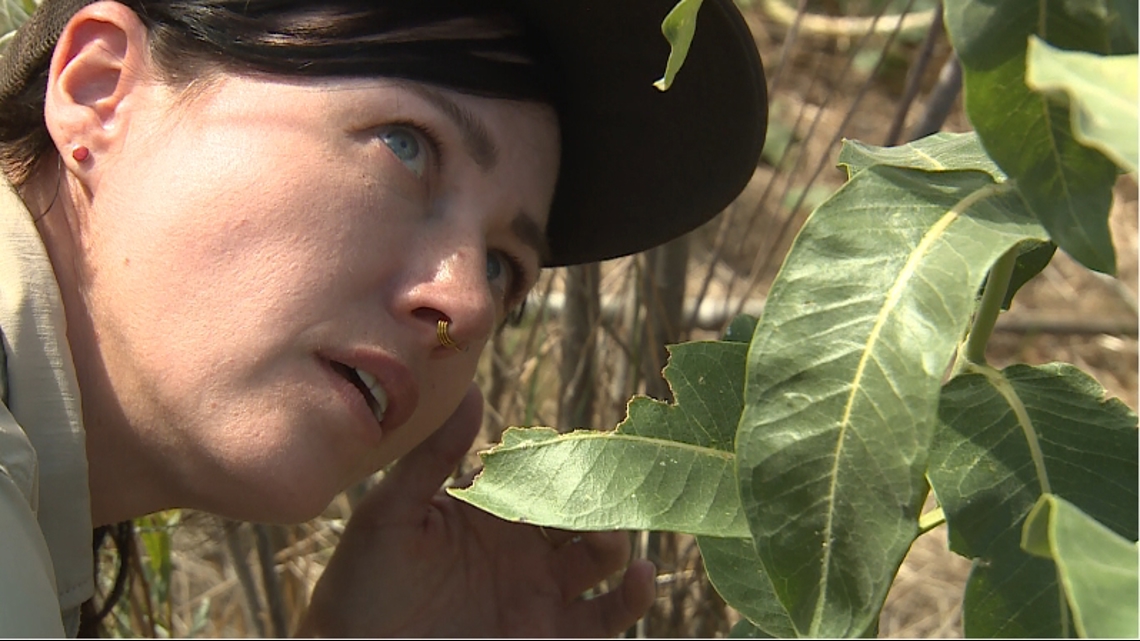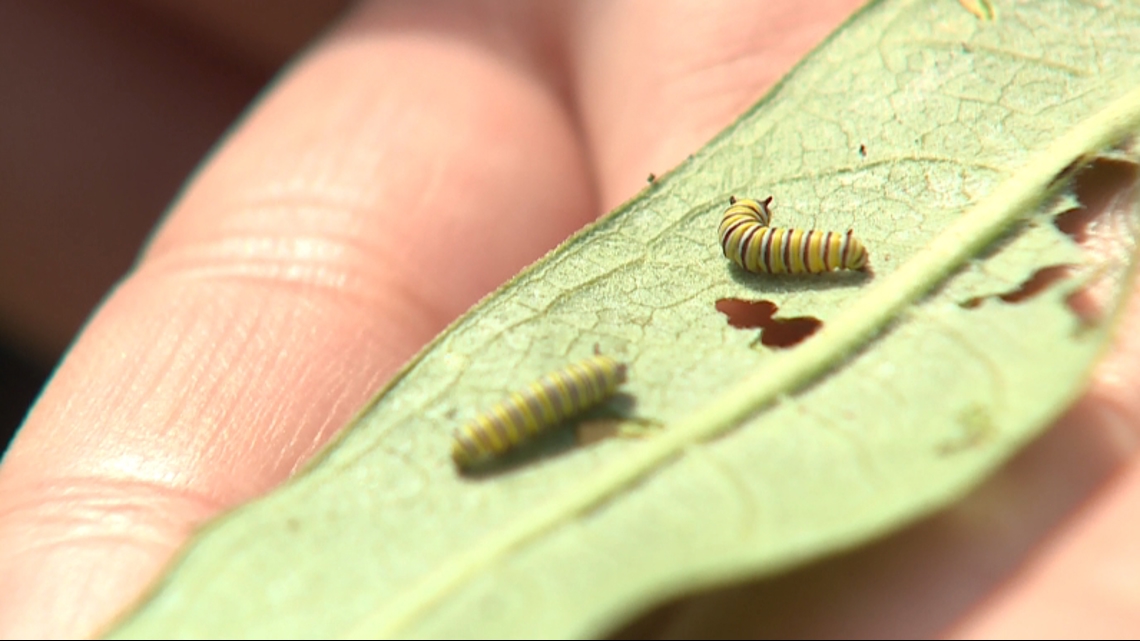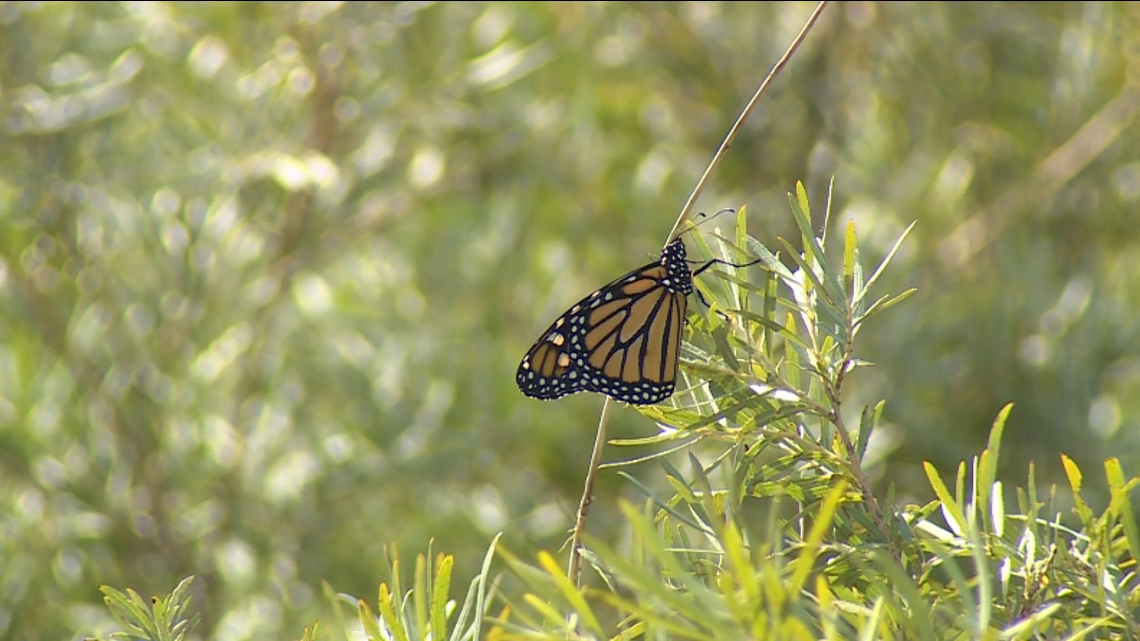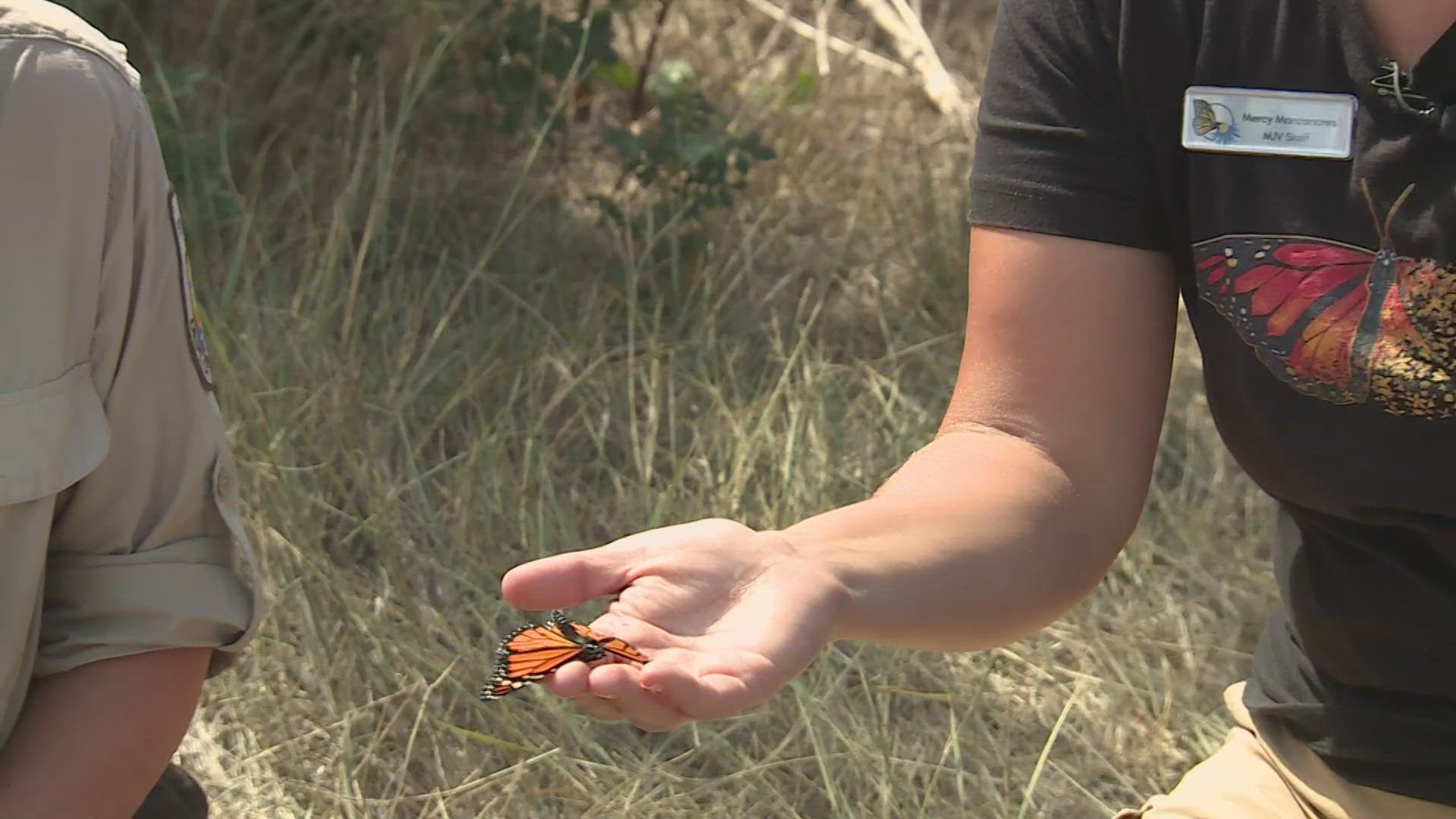AURORA, Colo. — The Department of Defense isn't the first group you'd usually think of when it comes to wildlife conservation, but that's what they're doing at Buckley Space Force Base. Wildlife biologists there are helping make their land a more comfortable home for monarch butterflies.
Each year, the butterflies migrate 2,000 miles across North America, many stopping in Colorado.
"One of the things about Monarchs is we have quite a bit of data on them, again because they do gather in one spot and allow us to count them," said Mercy Manzanares, program coordinator with Monarch Joint Venture. "Over the last 20 years, they’ve declined anywhere between 48-69% within the Eastern population and then the Western population has really declined. They’ve declined by 99%."
The Department of Defense is working with U.S. Fish and Wildlife Service, and the nonprofit the Monarch Joint Venture, to restore 1,000 acres of shortgrass prairie habitat on Buckley Space Force Base to help the butterflies.
"Grasslands are the single most endangered ecosystem on the planet currently, and its heavily utilized by monarch butterflies, specifically," said Veronica Reed, biologist with U.S. Fish & Wildlife Service.


She said they're also working hard to make the grasslands on base function as they did historically.
"Grasslands sequester an extremely high amount of carbon, even just compared to forests, and that’s extremely important especially in this day in age," Reed said.
She said the grasslands there are in varying stages of degradation and they're working to reseed native grasses and pollinator plants, as well as releasing biological controls to reduce the spread of noxious invasive species. Reed said she's also planting milkweed. This is a favorite food for the butterflies and a place for them to lay their eggs.
"Where we’ve been finding egg and larvae on Buckley are in these areas that butt up against some shade because it lowers the temperature by 10-15 degrees," she said.


Reed said they've seen "very low" numbers of monarchs this year, most likely because of high temperatures and drought-like conditions during the summer, which is also contributing to a limited amount of flowering plants, where butterflies get nectar.
"They're currently a candidate species under the Endangered Species Act and that's one of the reasons why there's a larger focus on them," Manzanares said. "However, I like to think of monarchs as an umbrella species as a lot of the habitat restoration that we do for them can then benefit a multitude of species."
Monarch butterflies are the only butterflies that make two-way migrations, like birds. They can soar up to 11,000 feet.
Anyone who would like to help monarchs can plant native Showy Milkweed at their homes. Planting native flowers is also important for the butterflies to get nectar. You can participate in citizen science projects where anyone can help monitor and even tag the butterflies for research.



